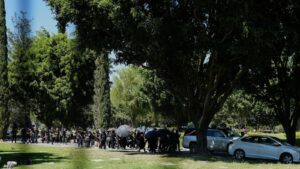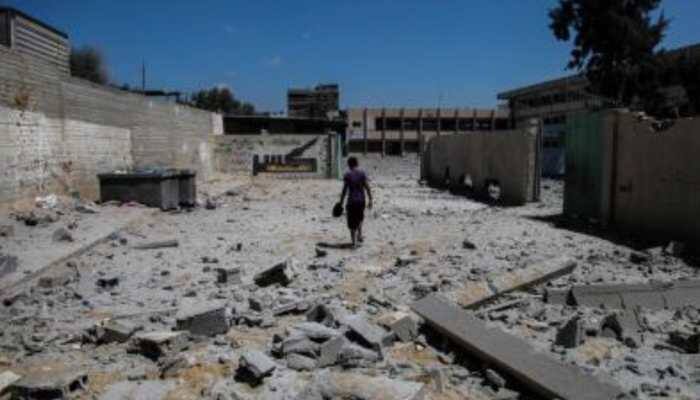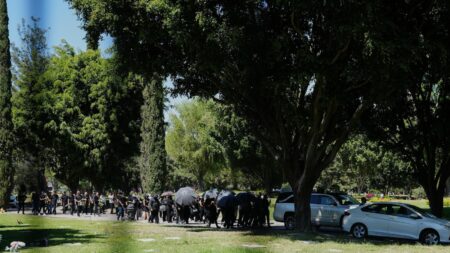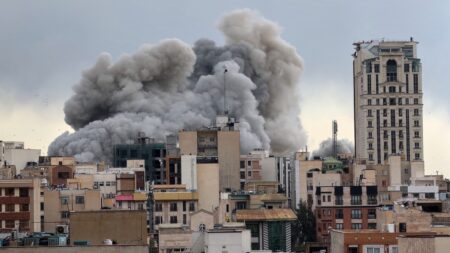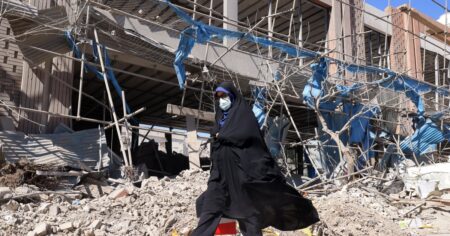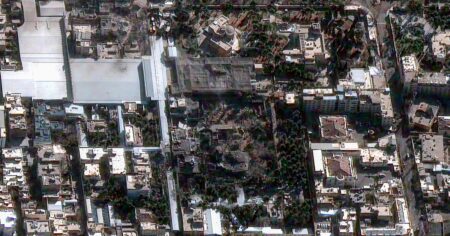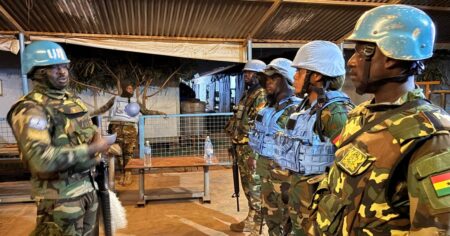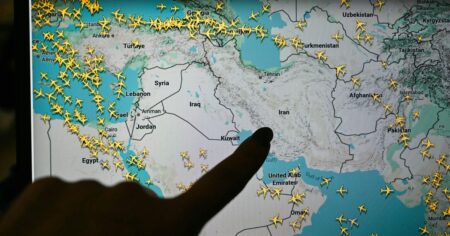Hamas has announced that it is ready to begin new indirect talks for a ceasefire in Gaza. The statement was made on Sunday in a press release, where the group also thanked Qatar and Egypt for their ongoing efforts to mediate a peace agreement. Hamas said it is ready to start the talks right away to settle the remaining issues with Israel.
The group explained that the talks aim to stop the humanitarian crisis in Gaza. It also wants to make sure that aid is delivered quickly and that Israeli forces leave the Gaza Strip completely. This announcement comes after months of heavy fighting and a growing number of civilian deaths in the region.
There has been no official response yet from the Israeli side about this announcement. While Hamas is calling for peace talks, the Israeli military is expanding its operations in the Gaza Strip. Israeli army chief Eyal Zamir has ordered more ground operations in both the northern and southern areas of Gaza. The Israel Defense Forces released a statement saying that these operations will continue. They said the goal is to bring back Israeli hostages and defeat Hamas.
On Monday, Israeli Defence Minister Israel Katz said that Hamas should accept a ceasefire deal or face more attacks. The deal was proposed by Steve Witkoff, a U.S. special envoy. According to media reports, this plan would happen in two phases. In the first phase, Hamas would release 10 Israeli hostages and return 18 bodies. In exchange, Israel would release 1,236 Palestinian prisoners and return 180 bodies. The second phase would include a 60-day ceasefire, during which more talks would take place.
It is not yet clear if Hamas will agree to the U.S.-backed plan. The group has not made any direct comment on the details of the offer. However, it has said that it is ready to talk and wants to reach a deal that ends the suffering of the people in Gaza.
The humanitarian situation in Gaza is getting worse every day. Thousands of people have been killed or injured since the start of the conflict. Most of the victims are civilians, including many women and children. Hospitals are full, and medical supplies are running out. Food and clean water are also hard to find in many areas. Many families have been forced to leave their homes due to the fighting.
The United Nations and other international groups have raised alarms about the crisis. They have asked both sides to stop fighting and allow aid to enter Gaza safely. Convoys carrying food, water, and medical supplies often face delays due to the military operations.
Qatar and Egypt continue to act as mediators in this conflict. They have helped organize talks in the past and are working again to bring both parties back to the table. These countries are seen as trusted by both sides, which makes them key players in any future deal.
In recent weeks, international pressure has increased. The European Union called the Hamas statement a step toward peace. The United Nations also welcomed the move and said that all sides must now act to protect civilian lives. In the United States, officials said they would keep working with partners in the region to support peace efforts.
Even though Hamas has shown interest in restarting talks, many challenges remain. There is a deep lack of trust between the two sides. Past efforts to reach a ceasefire have often failed or broken down quickly. Each side has accused the other of breaking past deals.
